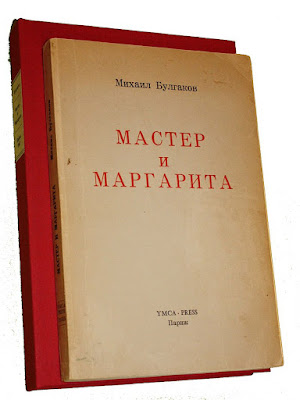The Science and Technology Section (STS) of the Association of
College and Research Libraries (ACRL) invites you to join us for as many of our
FREE virtual programs in June 2022 as you would like. Information for
each of our five (5) sessions is below, along with registration links, where
applicable. We hope to see you there!
June 7, 2022, 3:00-4:30pm ET - STS Hot Topics Summer
Discussion
The COVID-19 pandemic has seen a rapid proliferation
of scientific output, with the release of many pre-prints, datasets, and
scholarly articles, as well as the popular articles that discuss them. With the
output of articles retractions and misinformation also followed. The STS Hot
Topics committee will host a discussion session to examine changes to
scientific publishing and communication practices during the pandemic.
The discussion session will feature brief talks and
multiple breakout sections for participants to discuss impacts to our own work.
Our speakers will be:
· Ms. Julia
Gelfand, Applied Sciences & Engineering Librarian at the University of
California Irvine. She will be speaking on "STEM Publishing Lessons
Learned from the Pandemic: New Practices for Libraries &
Publishers".
· Dr. Jodi
Schneider, Assistant Professor of Information Sciences at the University of
Illinois Urbana-Champaign. She will be speaking on retractions in publications
during the pandemic.
Please join us via Zoom on June 7th from 3:00 - 4:30
pm ET. Register in advance for this meeting: https://go.umd.edu/hottopicssummer22. Speaker
presentations will be recorded. Breakout room and general discussions will not
be recorded.
After registering, you will receive a confirmation
email containing information about joining the meeting. If you have any
questions regarding this event, please email ACRL STS Hot Topics Committee
Co-Chairs, Isabella Baxter (ibaxter@umd.edu) and Mike
Goates (michael_goates@byu.edu).
June 13, 2022, 2:00pm-3:00pm ET - 2022 STS Government Information
Update
Join us for the annual STS Government Information
Update! This year's topic is the new National Institutes of Health (NIH) Data Management and
Sharing Policy that will be implemented in January 2023. The potential impacts
of this policy on libraries and library workers will be addressed by our four
presenters: Kristin Briney (Biology & Biological Engineering Librarian at
Caltech), Lisa Federer (Data Science and Open Science Librarian at the National
Library of Medicine), Taunton Paine (Director of Scientific Data Sharing Policy
at NIH), and Robyn Reed (Biomedical Informatics and Emerging Technologies
Librarian at Penn State College of Medicine).
This is a free, virtual program that is open to
all. Register in advance at https://bit.ly/3scysvr
After registering, you will receive a confirmation
email containing information about joining the meeting.
June 14, 2022, 1:00pm-4:00pm ET - 2022 STS Annual Program
This free program will be held virtually and will
consist of three (3) parts:
· (A)
1:00pm-2:30pm - The (Pending) Science Information Literacy Framework:
Three panelists will introduce the new (pending) Science Information Literacy
Framework (https://acrl.libguides.com/sts/STSILFramework):
Nikki Rech (Sciences Research and Instruction Librarian at Georgia Southern
University, and member of the Task Force that wrote the framework); Aditi Gupta
(Engineering & Science Librarian at University of Victoria Libraries); and
Anamika Megwalu (Faculty Director of Library Instruction & Assessment at
San Jose State University). Then participants will break into small groups to
discuss their experiences with and/or to delve deeper into the framework.
Sponsored by the 2022 STS Conference Program Planning Committee.
· (B)
2:30pm-3:00pm - Networking time
· (C)
3:00pm-4:00pm - Equitable Practices in Scholarly Communications: Join
Yasmeen Shorish, Head of Scholarly Communications Strategies & Special
Advisor to the Dean for Equity Initiatives at James Madison University, for a
talk and discussion of equitable practices in scholarly communications.
Sponsored by the STS Professional Development Committee.
You are welcome to attend any or all parts. Register
at https://go.umd.edu/STS2022
Many thanks to Elsevier for sponsoring the live
captioning for this program!
June 15, 2022, 3:00pm-5:00pm ET - 2022 STS Research Forum &
Membership "Breakfast"
This free program combines the STS Research
Committee's Research Forum presentations with the STS Membership
"Breakfast." The Research Forum from 3-4 ET and the Membership
"Breakfast" from 4-5 ET. Come for part or all!
In the first hour of the program, the STS Research
Forum will consist of two presentations, with time for questions and answers at
the end. The two presentations will be:
· The Status
of Women in STEM in Higher Education in the United States during the COVID-19
Pandemic: A Review for STEM Librarians - Heidi Blackburn, George Mason
University
· Understanding
Open Access (OA) Trends in Engineering through Scholarly Assessment: A
Bibliometric Analysis of Open Access Publications at the College of Engineering
at the University of Arkansas-Fayetteville - Jonathan M. Torres, Rutgers
University-Newark , and Jay McAllister, University of Arkansas Libraries
The second hour of the program will be a virtual
membership "breakfast" with casual discussions in breakout rooms.
Learn how your science librarian colleagues are handling issues such as
transformative publishing agreements and the great reshuffle/resignation or
choose to talk about new things you're learning and excited to share. This is a
wonderful time to reconnect with colleagues from around the country!
Register in advance for this event:
https://uic.zoom.us/meeting/register/tZAoc-ihrD4sHdLziEbDphEaRpeyxXlRDH0g
June 16, 2022, 3:00pm-4:00pm ET - 2022 STS Lightning Talks
The STS Research Committee will host its free virtual
Lightning Talks session on Thursday, June 16. The session will consist of three
short presentations, with time for questions and answers at the end. The three
sessions will be:
· Using
curriculum mapping to improve information literacy instruction in engineering -
Tracy Zahradnik, University of Toronto
· Incorporating
the ACRL Information Literacy Framework into a Natural Resources Management
Decision-making Framework - Patricia Hartman and Robert Gitzen, Auburn
University
· Beyond
ENIAC, LO, and Reaper: Promoting DEIA in the History of Computing - Carmen
Cole, Penn State University
Register at https://forms.gle/tHUTFGPhZVRbWkmr7
Please contact Bonnie L. Fong (STS Vice-Chair/Chair-Elect) at LibrarianBonnieFong@gmail.com if you
have any questions.









